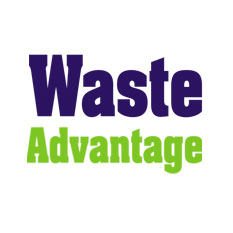Compliance on Autopilot: How Maintenance Technology Helps Waste Management Fleets Stay Above-Board
Waste & Recycling | 2024-07-05 00:04:32
The beauty of electronic data is its ability to be analyzed and transformed into actionable insights.
SEATTLE (Waste Advantage): Maintaining a compliant fleet is not just a cornerstone of success in the waste management industry—it is a necessity. DOT regulations ensure the safety of drivers, the public, and the environment—all while keeping waste collection routes running smoothly. Preventive maintenance plays an important role in achieving and maintaining compliance, ultimately keeping your fleet on the road and your routes on schedule.
Compliance Challenges in Waste Management
Waste management fleets are required to carefully balance efficiency, safety, and environmental responsibility. Unlike some other fleets, their vehicles face unique challenges that threaten compliance with DOT regulations:
- Waste collection trucks are workhorses. They endure heavy loads, constantly stopping and starting throughout the day. This puts immense stress on brakes, transmissions, and suspension systems. Plus, the constant opening and closing of doors, combined with the physical strain of loading, and unloading heavy materials, accelerates wear and tear on hinges, latches, and hydraulic systems. Combine all this with tight schedules and pressure to meet quotas, and preventive maintenance can easily fall by the wayside.
• Waste collection exposes vehicles to a brutal combination of elements. Rain, snow, sleet, and scorching sun all take their toll. Electrical components can corrode, hoses can crack, and vital fluids can become contaminated. Without regular inspections and proper maintenance practices, these issues can fester and lead to unexpected breakdowns or safety hazards.
• Beyond the wear and tear, waste management fleets must navigate a complex web of DOT regulations specific to their industry. These regulations cover everything from vehicle weight limits and lighting requirements to driver qualifications and hours-of-service limitations. Staying on top of these ever-changing regulations requires a dedicated effort and a system for ensuring compliance.
The cumulative effect of these challenges can be significant. Unnoticed issues can morph into safety violations during roadside inspections, leading to costly fines and vehicle downtime. Unexpected breakdowns can disrupt waste collection schedules, causing service disruptions and potential environmental hazards. By prioritizing a preventive maintenance program and leveraging maintenance technology, waste management companies can overcome these challenges and ensure their fleets operate safely, efficiently, and in compliance with regulations.
Preventive Maintenance as an Ally
Fleet maintenance technology offers a suite of digital tools designed to streamline maintenance processes. Following is a breakdown of how this technology works.
Centralized Data Hub
At the core of this technology lies a secure software platform that acts as a central hub for all your fleet data. Vehicle information, maintenance history, fuel consumption records, and driver logs are all stored electronically, readily accessible from any mobile device.
Automated Reminders and Scheduling
Gone are the days of relying on memory or manual reminders for critical maintenance services. Maintenance technologies, like fleet management software, automate the process, sending alerts and notifications to fleet managers and technicians when preventive maintenance is due. This ensures timely servicing, catching minor issues before they escalate into major problems.
Mobile App Convenience
The power of fleet maintenance technology extends to the hands of your drivers. Mobile apps allow them to perform pre- and post-trip inspections electronically, capturing vital data and reporting any concerns with the vehicle in real-time. This not only improves the accuracy and consistency of inspections, but also empowers drivers to be active participants in maintaining a safe fleet.
Digital Reporting and Analytics
The beauty of electronic data is its ability to be analyzed and transformed into actionable insights. Fleet maintenance technology generates comprehensive reports that provide a clear picture of your fleet’s health, identifying trends in maintenance needs and potential weak spots within your vehicle models. This allows for data-driven decision making, allowing you to optimize maintenance strategies and resource allocation. Additionally, this documentation is vital during DOT inspections, demonstrating your commitment to preventive maintenance and vehicle safety.
A Crucial Element in Compliance
The bottom line is that preventive maintenance is not just about keeping your waste collection vehicles running smoothly. It is a crucial element in maintaining compliance with DOT regulations, ensuring driver safety, and avoiding costly downtime. By prioritizing preventive maintenance, waste management companies can not only keep their routes running on schedule, but also demonstrate their commitment to safety and environmental responsibility.
Courtesy: www.wasteadvantage.com
 By
By 